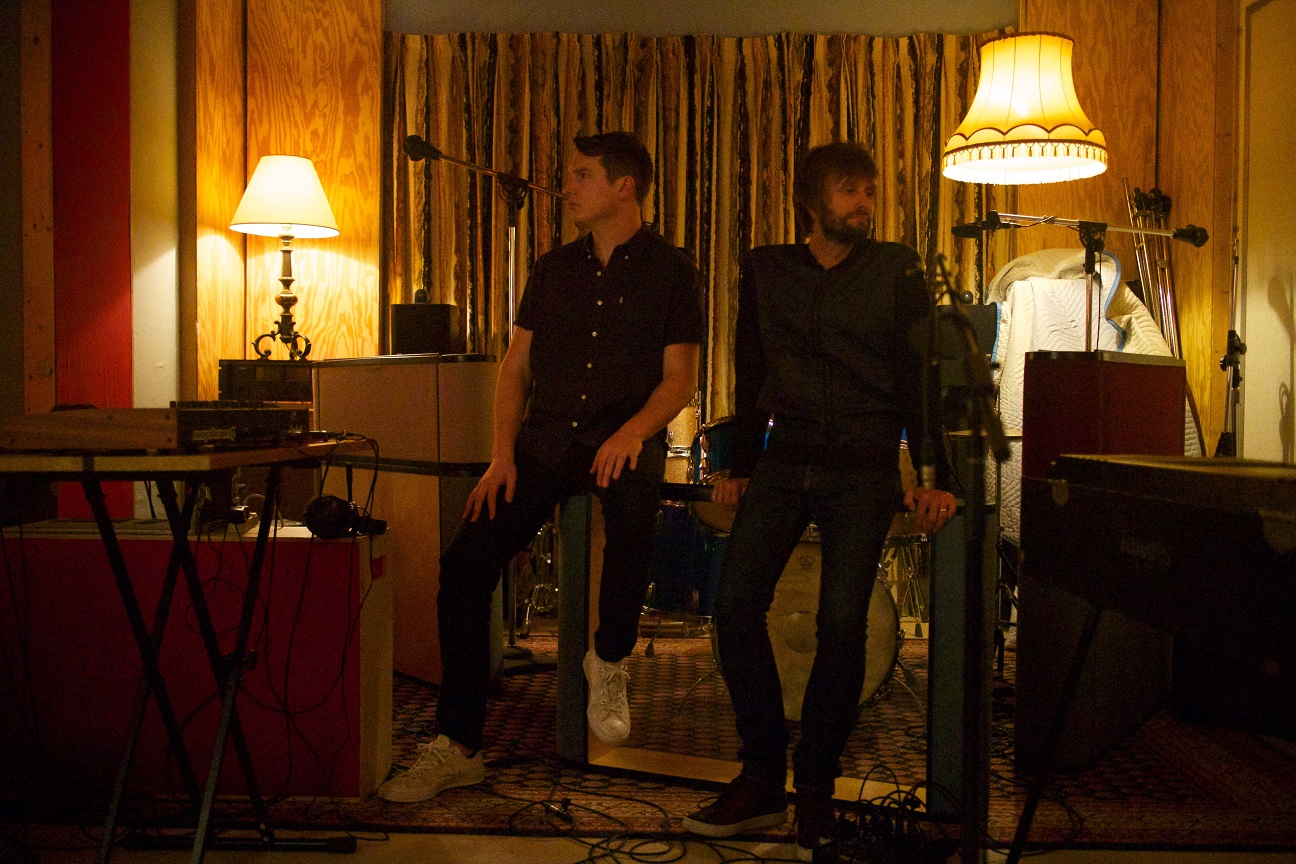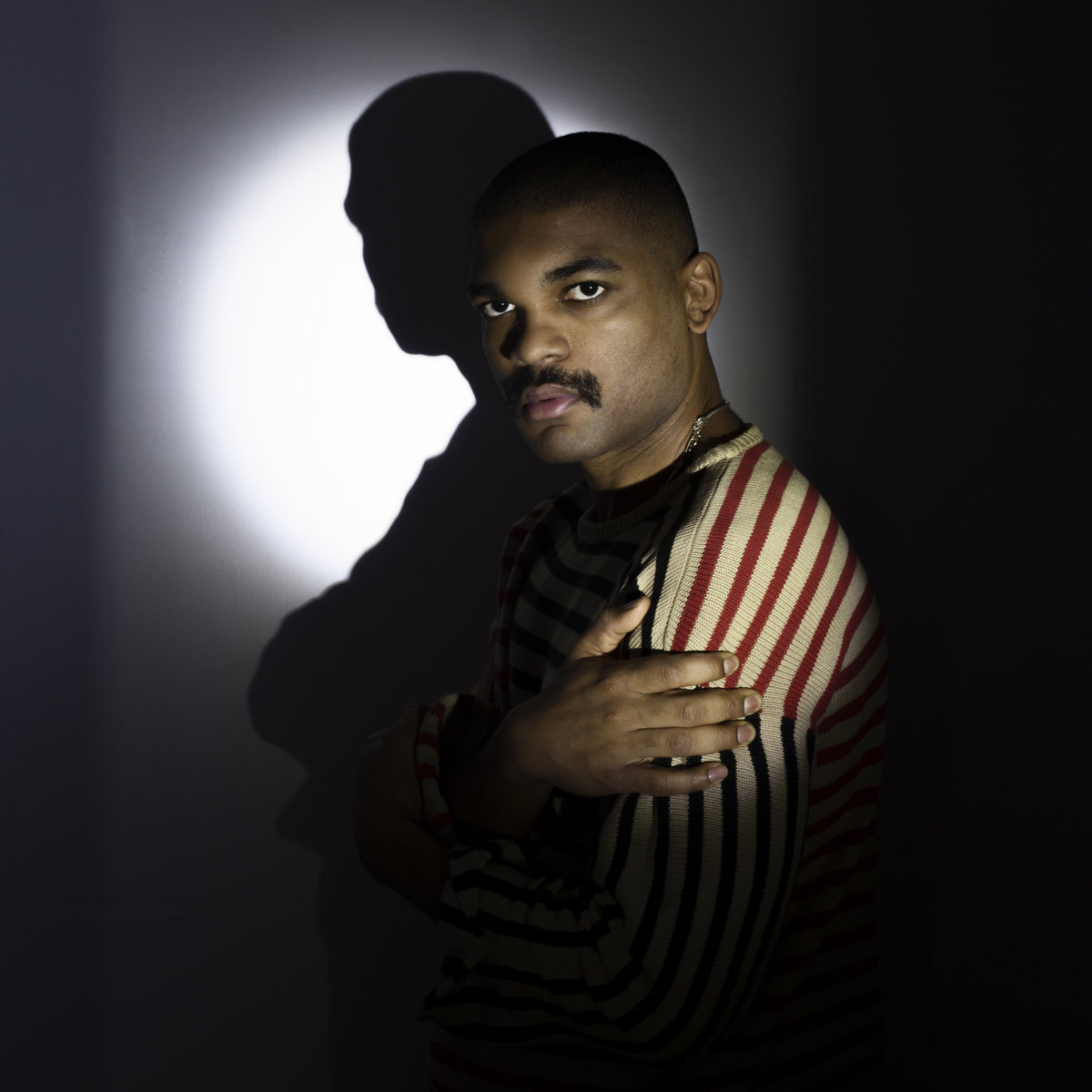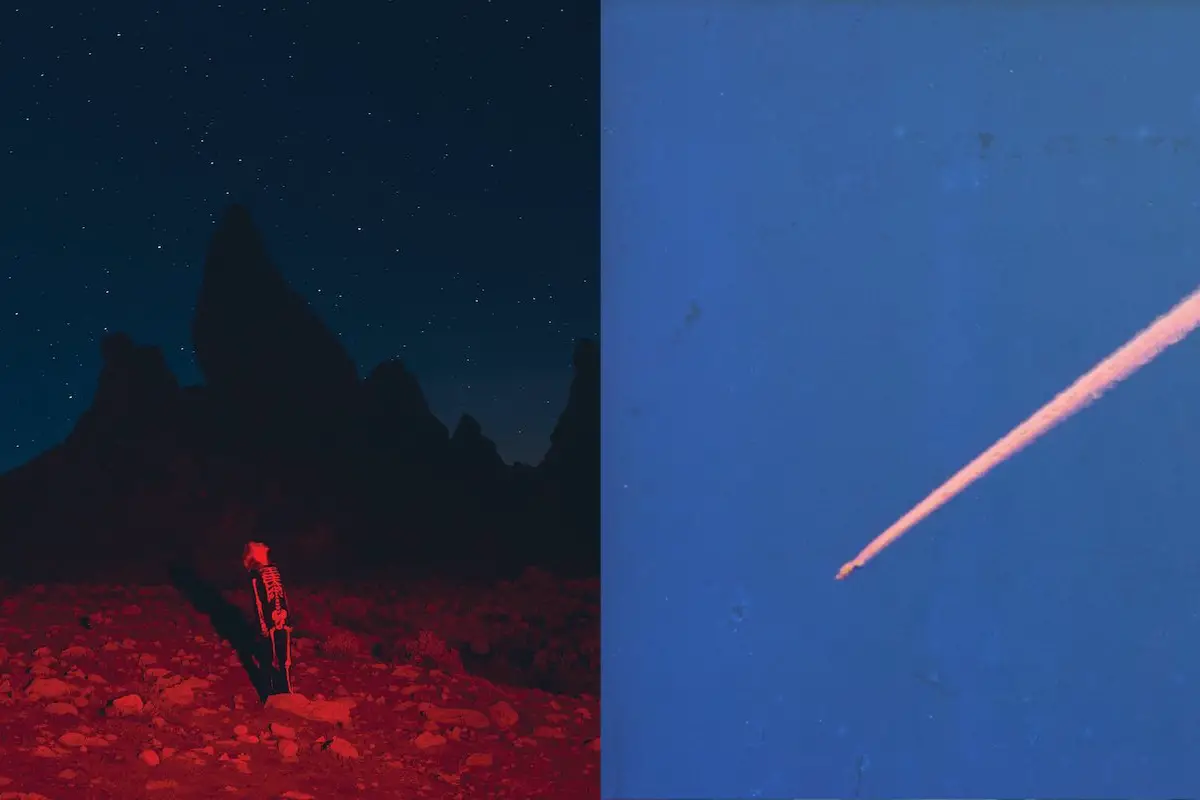Cults’ Madeline Follin and Brian Oblivion unpack ‘To the Ghosts,’ an album with a distinct atmosphere full of fascinatingly spectral production and compelling lyrics.
Stream: ‘To the Ghosts’ – Cults
Over the course of “14 wonderful years,” Cults have amassed listeners from around the world with their signature cinematic, soaring, oftentimes otherworldly production.
Their fifth studio album, To the Ghosts (released July 26th via Imperial), retains all the qualities that make them as captivating as they’ve always been. Band members Madeline Follin and Brian Oblivion stepped off their tour bus for a brief moment to discuss the album, how it came about, and their career at large.
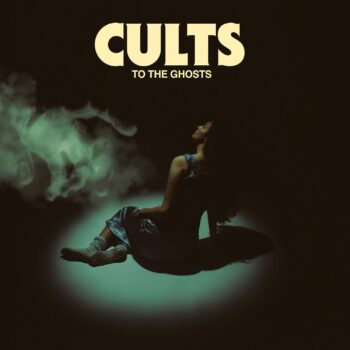
To the Ghosts is a retrospective record for Follin and Oblivion, their sweeping sonics ever-present but with a much more upbeat, clear pop influence throughout.
“It was important to us that this record have moments of levity and tenderness… the last couple records we made were pretty dark… we’re in a pretty good spot, mentally and as a band, it’s fun to explore that,” Oblivion tells Atwood Magazine. Whether it be the promise of what’s to come on “Leave Home” or the uniquely witty lyrics on “Onions,” the tracks on To the Ghosts feel like an exploratory realm for Cults.
The process began in the midst of the pandemic. “We felt like we had a lot more time and a lot less pressure,” says Follin. “It was kind of freeing for our writing process.”
I chop onions
Then I cry
Funny no one tells you why
We’ve been eating things that can hurt us
For a long time
Find some love before I die
Funny that we even try
We believe in things that can hurt us
For a long time
Working together for 14 years has allowed Follin and Oblivion to get a deeper understanding of how they operate when creating a record.
“We’re each other’s editors, really,” Oblivion shares. That being said, the two candidly admit that before To the Ghosts was narrowed down to the 13 track journey it takes listeners through, there were hours and hours of music to mull over. During the process, Oblivion says that they often have different ways or preferred methods of creating their art. For instance, Oblivion enjoys alluding to other musicians and embodying other artists’ sounds and tones, while Follin prefers not to do so. “I’ve learned to keep those things to myself,” Oblivion says jokingly, but Follin “always know[s]” when it’s happening. At the heart of it all, Oblivion notes, “Individually, we have really different tastes and different styles of writing, but ‘Cults’ is what happens when we work together… It’s outside of both of us… that feels really liberating.”
It’s no wonder that Cults’ sound has solidified into one that feels inherently filmi;c self-proclaimed fans of horror movies, the eerie and haunting is their “daily aesthetic.” That much is clear on To the Ghosts among tracks like “Hung the Moon” and “Eat It Cold,” with deep, thumping pulses and ghostly, almost gothic undertones to these songs in specific.
We knew the family tradition
Eat it up cold
It leaves us hungry
It’s been passed down the line
For a couple of centuries
Now there’s no more people that we trust
Almost feel the secrets swallow us whole
It’s been passed down the line
For a couple of centuries
All our mothers teaching all of us
All our mothers keeping all of us

The ethereal and ominous soundscapes also come with songs like “Crystal,” promiseful and light-hearted moments that feel in place with their darker sister tracks. Oblivion even says himself that they were aiming to “put some songs in here that feel nostalgic and hopeful.” This anticipative feeling is in part a result of the retrospective state the two were in during the making of the album, the pandemic almost forcing them to live among bygone memories.
“It was a time of reflection, sitting around at home, not knowing what the hell the future was gonna be, so there was a lot of time to look back at the past, the good times and the bad times,” Follin recalls.
Follin even realizes, during our interview, that it’s no wonder the tracks took on an essence of the past, creating the album amongst elements that reminded her of her adolescence. “I ended up flying out to San Diego and we were quarantining in [Brian’s] parents’ house actually… I was hanging out with a bunch of my high school friends, living where we lived in high school, so yes, definitely,” she says, when asked if elements of To the Ghosts are synonymous with pre-adulthood.
Something that remains consistent throughout Cults’ five albums is their ability to have some of the most grand and intense production that modern musicians are putting out these days.
On this go-around, “This cycle was a little bit different,” Follin says. “Every time we’ve written an album, we always do the instrumental first and then once we [finish] the instrumental, then we start working on melody and lyrics, which has been a challenge. This time, we decided to do it a little differently and when we kind of had the bones of the song, we would start working on melody and lyrics kind of at the same time. I feel like it’s probably going to be the way forward for us.”
It’s no wonder that the instrumentals typically came first for Cults, that specific element of their music always being one of the most interesting and gripping components. Listeners never would have guessed that some of these beautiful melodies and absorbing lyrics were born out of “ultimately just trying to entertain each other,” according to Oblivion. Cults are always just trying to “sing something that sounds cool… I think historically we’d be too insecure to do that, but this time we were like, ‘We can do it! We’ve been doing this for a long time!’”
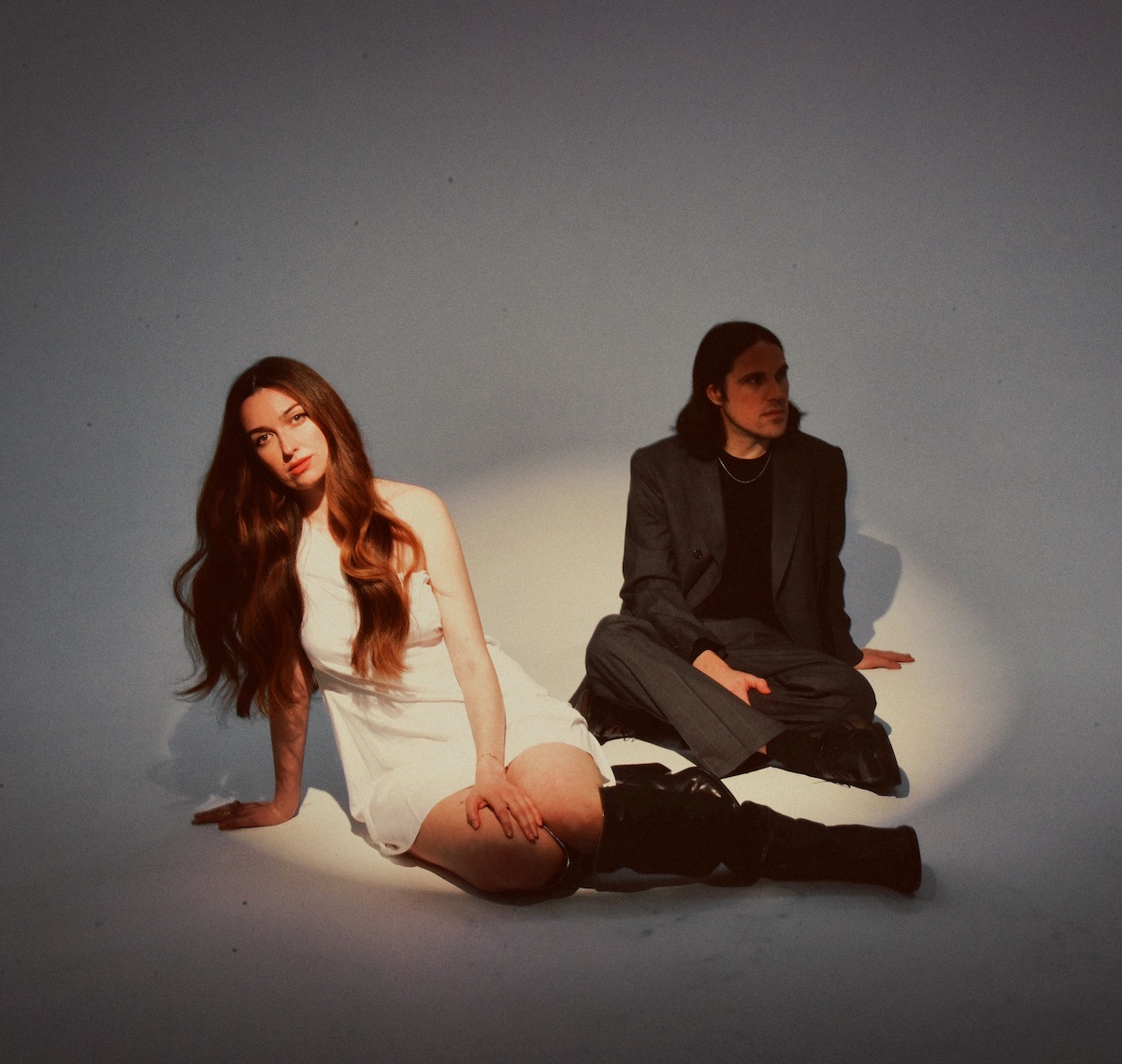
While there was “a lot of improvisation, even in that sphere of vocals and lyrics” on To the Ghosts, there were moments when Follin and Oblivion had trouble seeing eye to eye on the record. When they inevitably hit this point in the process, they reach out to their longtime producer who they have “worked with since we were basically babies,” Shane Stoneback. Stoneback has worked with artists like Vampire Weekend and Sleigh Bells. He always helps to work Follin and Oblivion out of any rut they run into.
“Brian and I are working on the record and it’ll just hit a point where we’re not able to communicate with each other, like we both want things but we don’t know how to explain that to the other person and at that point, we’re usually like, ‘We need to call Shane and have him help us figure this out.’”
Follin raves about Stoneback’s ability to bring to life ideas that she and Oblivion get stuck on mid-creation. “We’ll call him and send him some of the tracks and… no joke, within an hour, he can send something back where we’re like… ‘That’s what I was talking about, we just didn’t know how to make it happen.’”
At the core of their relationship, what Follin says is most important about Stoneback and the part he plays in their projects is “he really cares that we’re both completely happy with the record… We’ve tried to work with other people a few times and it hasn’t been what it’s like with Shane.”
It is no wonder that To the Ghosts, an album full of life’s light and darker corners, is a labor of love and respect among all parties involved.
Follin and Oblivion’s combined mastery of lyricism, melodies, and their overall ability to create a tangible atmosphere has led to hits like “Always Forever” and “Gilded Lily.”
When asked if they assumed or had some kind of inkling that these tracks would become not only fan favorites, but also moments of cultural phenomena, Follin says, “They were definitely our favorites, but you really never know… we both wished for each of those songs to be singles, but for one reason or another, no label wanted that… we were like, ‘We love these songs, but maybe that’s just us’… people ended up finding them, which was really shocking.”
Oblivion is just as proud of those tracks, saying, “We accomplished the idea of a song most completely” on those projects in particular. He “hope[s] that people take away from that the knowledge that when you create something, it can have a life of its own at anytime… pretty much five years after each one came out, they became popular.”

With the release of their fifth album and being in the industry for well over a decade, Oblivion says he’s “finally reached a point where I don’t think I’d change anything for fear of undoing the thread and not landing where we are now” – threads that have led Cults to collaborations with Taylor Swift on the “Fortnight” remix and songs of theirs reaching platinum status.
At the heart of To the Ghosts, Oblivion says, “There’s beauty and fascination in depression and darkness, but at the same time, there’s lightness and levity and comedy in that too… it’s a retrospective of us being like, ‘What the hell, how did we get here?’”
Follin says their favorite thing is to let fans “take away whatever they want from [an album],” and whether that be To the Ghosts’ messages on leaving behind your roots, or the simple sweetness of love, the record has something to give every kind of listener.
— —
:: stream/purchase To the Ghosts here ::
:: connect with Cults here ::
— — — —
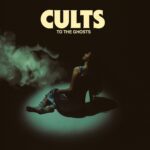
Connect to Cults on
Facebook, Twitter, TikTok, Instagram
Discover new music on Atwood Magazine
© Shervin Lainez
To the Ghosts
an album by Cults


 © Shervin Lainez
© Shervin Lainez